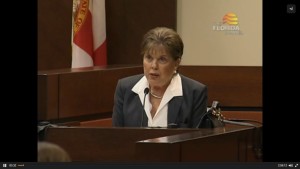 Education bill: Most of the legislative session's major education issues are tied into a single bill that lawmakers will vote on today as part of the state's overall budget. Testing reforms, teacher bonuses, mandatory daily recess and expansion of charter schools are all part of the bill, which can only pass or fail. No amendments are permitted. Miami Herald. Politico Florida. Sunshine State News. News Service of Florida. A guide to what's in the 278-page, $414 million education bill. Politico Florida. The Florida Legislature is back in session today to vote on the state's $82.4 billion budget. Tampa Bay Times. News Service of Florida. Politico Florida. WFSU. Advocates for mandatory daily recess for elementary students are angry that the bill was lumped into the omnibus education bill and watered down with an exemption for charter schools. “This is not just about recess anymore. This bill is a mishmash of some policies that have never even been vetted before,” says Angela Browning of Orlando, one of the parents who have been fighting for years to get daily recess for students. Miami Herald. Other parents and school leaders also are urging that the Legislature reject the education bill. Miami Herald. Palm Beach County School Superintendent Robert Avossa often says his county is a "donor" to the state education budget. Here's why. Palm Beach Post. State school districts say they will be hurt by the state education budget. Daytona Beach News-Journal. Panama City News Herald. St. Augustine Record. WJAX. Charter schools, school choice and universities are among the winners in this year's legislative session. Ocala Star Banner. Sunshine State News.
Education bill: Most of the legislative session's major education issues are tied into a single bill that lawmakers will vote on today as part of the state's overall budget. Testing reforms, teacher bonuses, mandatory daily recess and expansion of charter schools are all part of the bill, which can only pass or fail. No amendments are permitted. Miami Herald. Politico Florida. Sunshine State News. News Service of Florida. A guide to what's in the 278-page, $414 million education bill. Politico Florida. The Florida Legislature is back in session today to vote on the state's $82.4 billion budget. Tampa Bay Times. News Service of Florida. Politico Florida. WFSU. Advocates for mandatory daily recess for elementary students are angry that the bill was lumped into the omnibus education bill and watered down with an exemption for charter schools. “This is not just about recess anymore. This bill is a mishmash of some policies that have never even been vetted before,” says Angela Browning of Orlando, one of the parents who have been fighting for years to get daily recess for students. Miami Herald. Other parents and school leaders also are urging that the Legislature reject the education bill. Miami Herald. Palm Beach County School Superintendent Robert Avossa often says his county is a "donor" to the state education budget. Here's why. Palm Beach Post. State school districts say they will be hurt by the state education budget. Daytona Beach News-Journal. Panama City News Herald. St. Augustine Record. WJAX. Charter schools, school choice and universities are among the winners in this year's legislative session. Ocala Star Banner. Sunshine State News.
Material challenges: Parents and members of the community will have greater power to challenge textbooks and other classroom materials used in schools under a bill passed by the Legislature. Supporters say the measure gives members of the community a say they weren't always getting from local school boards. Critics contend the bill makes it easier for objections on religious and philosophical grounds on things like the Holocaust, slavery, climate change and evolution. Miami Herald.
Scholarships expanded: The Legislature approves a bill that increases scholarship opportunities for poor students and those with disabilities. The amount of money poor students receive under the tax credit scholarship program is increased, and more disabilities will be covered by the Gardiner scholarship. Step Up For Students, which hosts this blog, helps administer both programs. Miami Herald. redefinED. Associated Press. Politico Florida.
Sports choice: Private school students in Florida will be able to play sports at the public school of their choice, based on that school district's open enrollment policy, if Gov. Rick Scott signs a bill the Legislature has passed. redefinED.
Charters and testing: A report from the Florida Department of Education concludes that charter school students outperform their peers on state assessment tests in most subjects and for most age groups. And the report says most poor and minority students also perform better at charter schools. A little less than 10 percent of Florida's students attend charter schools. Sun-Sentinel. Miami Herald. (more…)

Alachua County School Board member Eileen Roy testifies in court Friday (screenshot from the Florida Channel)).
Late in its first week of trial, the wide-ranging lawsuit challenging the state of Florida's education system veered into school choice issues.
An Alachua County school board member told a Leon County circuit court that, among other things, charter and "voucher schools" aren't subject to the same mandates as those run by her district, and that those options draw students, and therefore money, away from traditional public schools.
The long-running case, whose trial continues this week after more nearly seven years of legal battles, argues Florida has shortchanged its public schools in violation of the state constitution. Lawyers for the state have maintained the plaintiffs' arguments address "political questions" about education policy that shouldn't be decided in court.
A line of arguments, introduced in 2014, takes aim at charter schools and two private school choice programs — tax credit scholarships for low-income children and McKay scholarships for special needs students.
Late last year, Leon County judge George Reynolds rejected some of those additions to the case, including a direct constitutional challenge of the scholarship programs. (Step Up For Students, which hosts this blog, helps administer the tax credit scholarships).
The plaintiffs, who consist mostly of parents and activist groups, can still make arguments about the programs' effect on the education system as a whole.
During her Friday testimony, Eileen Roy, a member of the Alachua County School Board, said her district was losing funding as charter schools grew and students enrolled in private schools with the help of choice programs. (more…)
 Editor's note: This op-ed appeared in today's Tampa Bay Times.
Editor's note: This op-ed appeared in today's Tampa Bay Times.
Few public issues are as absorbing as the balance between religion and government, so a ballot initiative that aims to change the boundary is worthy of rigorous debate. Instead, Florida's Amendment 8 is being treated to a proxy campaign on school vouchers.
A new radio ad by the Florida Education Association: "Amendment 8 allows the government to give our tax dollars to any group claiming to be a religious organization, so any religious group or sect can use our money to fund their own religious schools."
FEA president Andy Ford: "This is designed to open the state treasury to voucher schools."
Alachua School Board member Eileen Roy: "It's the very death of public schools. That's not overstating it, in my opinion."
These are provocative arguments, to be sure, but they are basically irrelevant. The amendment was placed on the ballot by two legislators — Sen. Thad Altman, R-Viera, and Rep. Scott Plakon, R-Longwood — who have said repeatedly they want to protect religiously based social services. Their interest was piqued by a lawsuit, Council for Secular Humanism vs. McNeil, that challenges a prison ministries program, and by the fact that the New York-based council has called it "a springboard to mounting other challenges."
In turn, the pro-Amendment 8 campaign is being led by a coalition of community-service providers and religious leaders who have raised less than $100,000 to date. They believe that if the secular humanists will sue over prison ministries, they might one day challenge the Catholic Charities or Catholic hospitals or the YMCA. After all, the current constitutional language is explicit: "No revenue of the state or any political subdivision or agency thereof shall ever be taken from the public treasury directly or indirectly in aid of any church, sect, or religious denomination or in aid of any sectarian institution."
Now it is certainly true that voucher advocates have previously pushed to alter the no-aid clause. But it is just as clear that they played no role in getting this amendment on the ballot and, most telling, have raised not a penny for the campaign. Their reasons are pragmatic, not philosophical: Federal and state court decisions in recent years have rendered the no-aid clause all but moot as it relates to school choice. Read full editorial here.